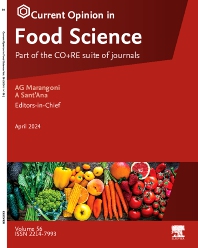Journals in Life sciences
Journals in Life sciences
- ISSN: 2468-4511
Current Opinion in Biomedical Engineering

- ISSN: 0958-1669
Current Opinion in Biotechnology

- ISSN: 0955-0674
Current Opinion in Cell Biology

- ISSN: 1367-5931
Current Opinion in Chemical Biology

- ISSN: 2451-9650
Current Opinion in Endocrine and Metabolic Research

- ISSN: 1877-3435
Current Opinion in Environmental Sustainability

- ISSN: 2214-7993
Current Opinion in Food Science

- ISSN: 0959-437X
Current Opinion in Genetics & Development

- ISSN: 0952-7915
Current Opinion in Immunology

- ISSN: 2214-5745
Current Opinion in Insect Science
